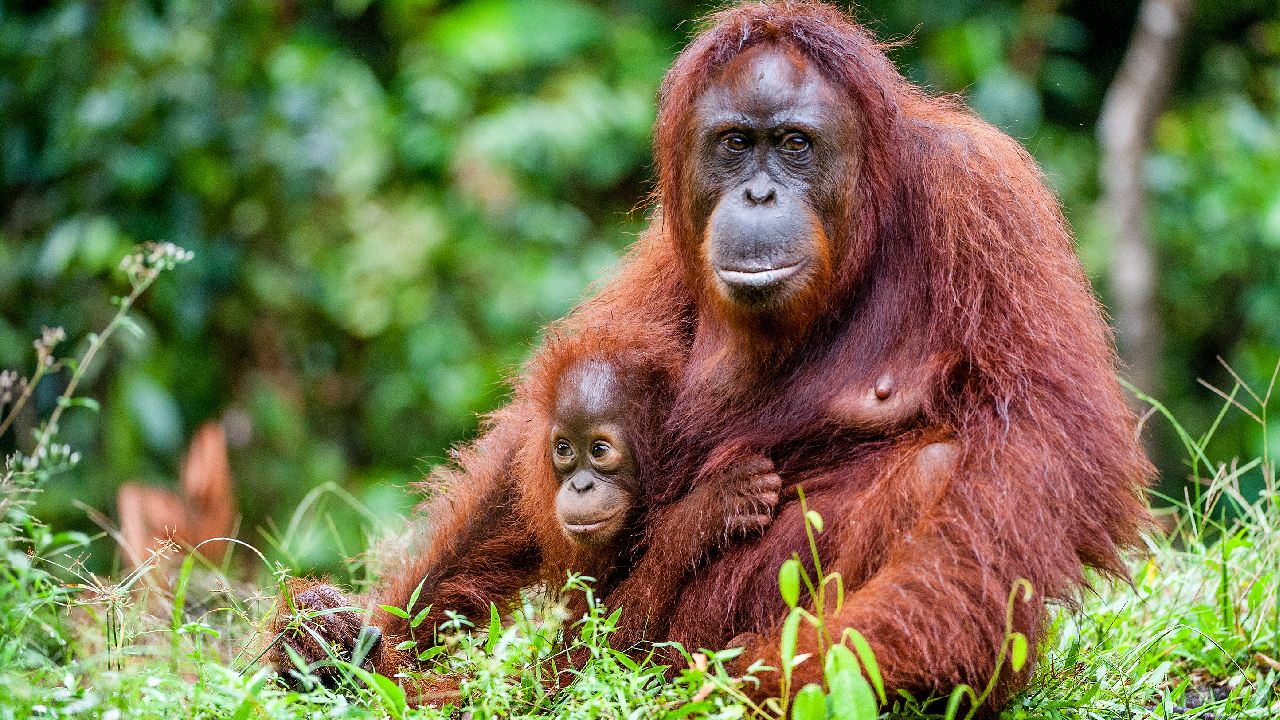Most amazing animal experiences to have when travelling

These are some unbelievable opportunities around the world to get up close (really close) to your favourite wild animals.
Monkey business / Viewing
The orangutan is Asia’s only great ape and Borneo is one of only two places in the world that they are found. Decades of deforestation have left the Bornean orangutan seriously endangered. At the Sepilok Orangutan Rehabilitation Centre 60 to 80 of the great apes live on a 43 square kilometre reserve while 25 orphaned babies are rehabilitated in the nursery. Though they look perfect for cuddling, guests can’t get too close – but you can visit during the two feeding times each day and walk among the boardwalks through the forest while the orangutans swoop from the trees to eat the fruit and sugar cane left on feeding platforms around 20 metres away from you
Baby elephant walk / Hands on
The Asian elephant is an endangered species and Thailand is home to more Asian elephants than anywhere in the world. For a hands-on experience with these gentle giants, Patara Elephant Farm in Chiang Mai allows you to participate in their day to day caring. There are six residents elephants that are “adopted” by guests for the day and you are trained to approach the elephant, know its temperament, feed and check its health, bathe and brush it in the river, learn how to ride on its neck and communicate through spoken commands.
King of the jungle / Interaction
You’re generally not encouraged to get up close to really dangerous animals, but at Lion Encounter in Zambia you can walk alongside some of the eight resident lion cubs – with no fence in between. The cubs range from three to 18 months old and will happily walk through the bush with you, pounce and play with each other and, if you’re lucky, even nuzzle in for a pat. Walks are escorted by guides, scouts and lion handlers so you are never in danger. The program is part of a larger breeding program and once lions graduate from this stage they will be removed from human interaction, integrated with a pack and eventually released into the wild.
A whale of a time / Interaction
The might be called dwarf minke whales but at eight metres long and weighing several tonnes, they are still pretty substantial. Dwarf minkes pass through the Great Barrier Reef each winter and this is the only place in the world that you can snorkel and dive with them. The whales are very inquisitive and an experience will generally involve interacting with two to three whales for around 90 minutes. Very little is known about these huge mammals so guests are often asked to participate in ongoing research programs and record their observations or submit photos to the minke whale database.
One for the bucket list / Viewing
With around half of Canada’s grizzly population, British Columbia is the best place to see the bears in the wild. A number of lodges have been established inside the Great Bear Rainforest where guests can participate in guided viewing sessions from boats, getting up very close to the action. Bears can be seen fishing for salmon in rivers, feeding on berries or succulents, and (very rarely) napping in the sun. Tours run from May to October, but visit from August onwards for the best chance to see cubs. At around $1,000 per person per night these tours aren’t cheap, but they are certainly unforgettable.
Image credit: Shutterstock
Related links:
5 of the most unusual places your spend the night
All aboard! Classic rail journeys around the world
6 of the world’s most beautiful (and surreal) landscapes
